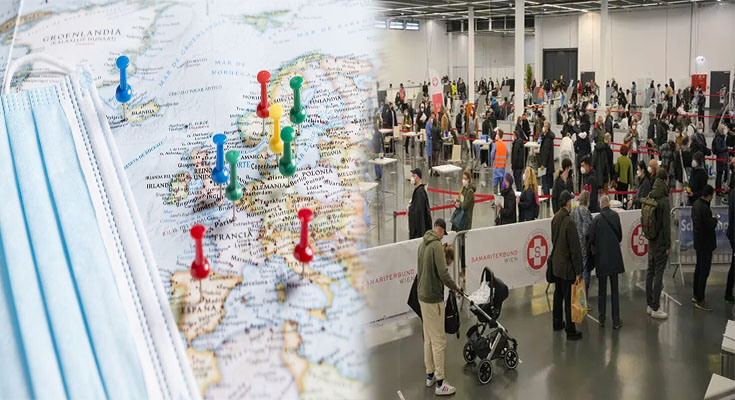Europe has a lot to offer, and there is a lot of diversity in its people and culture. Some of the countries that you can find in Europe are Austria, France, Italy, Hungary, Netherlands, and Czech Republic. These countries are some of the most popular destinations for tourists, and you should definitely take the opportunity to explore them.
Czech Republic
The Czech Republic is one of the few European countries that has not yet imposed any COVID-19 restrictions. That’s despite the fact that the country’s mortality rate is among the highest in the world.
Although the Czech Republic isn’t experiencing a second wave of Ebola like some other European nations, it is still a victim of its own success. Its economy is a well- developed one, and the government has maintained an open and respected health care system.
The country has also taken a number of measures to fight the virus. The most obvious is the closure of indoor public places, but the government has also taken the steps to restrict access to certain areas, such as restaurants, cinemas, and parks.
France
During the pandemic, France had strict rules and restrictions for travelers. Vaccination was required, and many tourists were turned away. Fortunately, the country has now lifted most of the regulations.
Travel to France is still possible. However, it is recommended that you read up on the health restrictions in other countries you may visit.
The COVID-19 vaccine is now available in France. Travelers who have been vaccinated with the new vaccine can avoid the need for a rapid antigen test. There are still some requirements that must be met, however.
Germany
If you are traveling to Germany, you must know the new COVID restrictions. You must have an EU vaccination certificate or have a positive test result.
Non-vaccinated travellers must be accompanied by a fully vaccinated person. This means a booster dose in the past nine months. Children under 12 years are exempt from the requirement.
Travelers from “red zone” countries must fill out a passenger locator form. Alternatively, they can provide proof of immunity or complete a Public Health Travel Declaration.
The PCR test is not a requirement. However, if you are a non-vaccinated visitor, you must provide a sworn declaration that you have not been in contact with a COVID-19 positive person within the last 14 days.
Hungary
Those travelling to Hungary need to be aware of the rules that govern this country. If you’re planning to visit this European Union country, you’ll need to be sure that you’re not committing any crimes. You should also check out the latest entry regulations.
The EU has introduced a digital COVID certificate. This can help you get through immigration and avoid any travel bans. Although you may be able to enter the country without a 10-day quarantine, you must have the proper documentation before you can leave.
Despite the new rules, there are still certain risks to be aware of when travelling to Hungary. One of these is the risk of tick-borne encephalitis. Another is the risk of petty crime. Petty crimes can occur in places such as highway parking areas, petrol stations, and nightclubs.
Austria
Austria’s government has taken a new approach to Covid-19 vaccination. The country is moving towards a mandatory vaccination requirement, and will become the first Western European country to impose stringent restrictions.
On Friday, President Alexander van der Bellen signed the law making the vaccine compulsory. While the law is a welcome step forward, some critics still question the need for compulsory vaccination.
Austria has a population of about 9.8 million. It is a member of the Schengen Area. However, there are strict rules on entry and exit into and out of the country.
Italy
Italy’s Europe covid restrictions are a relief for travelers. After being hit hard by the virus, the country has relaxed its entry requirements.
Those who travel to Italy must prove that they are fully vaccinated. The vaccination certificate is available in English and Italian. It also shows that the traveler has been tested for the infection and has recovered from the illness.
Travelers from the European Union must provide a negative COVID-19 test result upon arrival in Italy. In addition, travellers from the countries of “List C” must demonstrate that they have been fully vaccinated.
Netherlands
The Netherlands, as part of the Schengen Area, is open for tourism. However, as the Coronavirus continues to rise worldwide, some restrictions have been imposed on international visitors.
Covid cases spiked in the Netherlands last summer. In addition to the increased cases, the Delta variant of the virus became more contagious. Since the outbreak, 23,260 people have died.
As a result, the Dutch government introduced a series of measures to prevent the spread of the virus. These restrictions apply to both travelers and Dutch residents. You can learn more about these measures and read the latest updates from the Dutch Government on its website.





